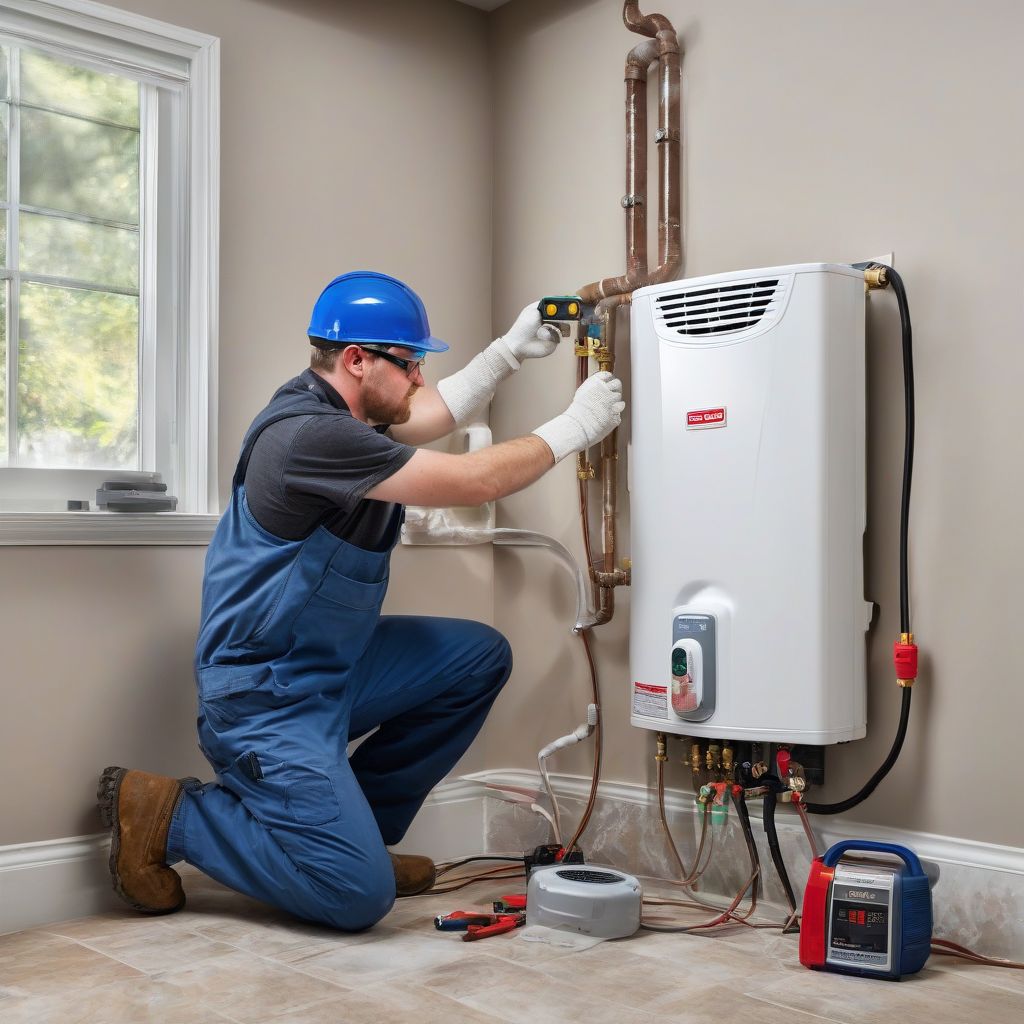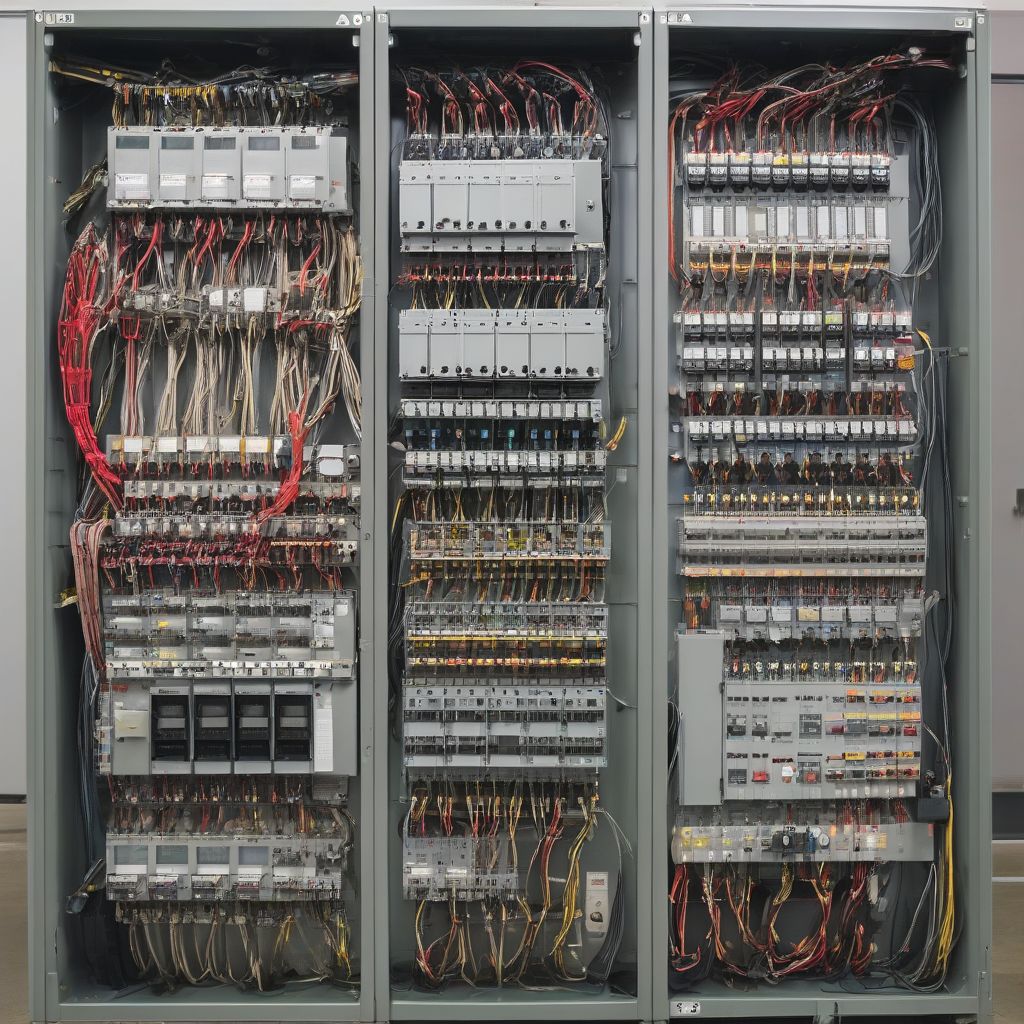Imagine this: you’re about to jump into a hot shower after a long day, only to be met with a blast of icy cold water. The culprit? Your old, inefficient water heater has finally given up the ghost. Instead of replacing it with another bulky tank-style unit, consider upgrading to an electric tankless water heater. Not only can this modern marvel save you money on your energy bills, but it also provides endless hot water on demand. But before you rush into anything, let’s delve into the ins and outs of Electric Tankless Water Heater Installation.
Understanding Electric Tankless Water Heaters
Traditional water heaters store gallons of hot water in a large tank, keeping it constantly heated – even when you’re not using it. This wastes energy and leads to higher utility bills. Electric tankless water heaters, on the other hand, only heat water as you need it. Cold water travels through a heat exchanger and is instantly heated by powerful electric coils when you turn on the tap.
Advantages of Electric Tankless Water Heaters:
- Energy Efficiency: Say goodbye to standby heat loss and enjoy significant energy savings.
- Endless Hot Water: Never run out of hot water again, even if you have a large family or frequently use hot water.
- Space Savings: Tankless units are compact and wall-mounted, freeing up valuable floor space.
- Longer Lifespan: With proper maintenance, electric tankless water heaters can last up to twice as long as traditional models.
Disadvantages of Electric Tankless Water Heaters:
- Higher Upfront Cost: Electric tankless units generally have a higher purchase price than tank-style heaters.
- Electrical System Requirements: They often require higher amperage circuits, which may necessitate electrical upgrades in your home.
- Limited Flow Rate: While they provide endless hot water, the flow rate is limited compared to tank-style heaters.
Electric Tankless Water Heater Installation: A Step-by-Step Guide
Installing an electric tankless water heater is a complex task best left to licensed professionals. Here’s an overview of the process:
1. Assessment and Planning:
- A qualified plumber will assess your hot water needs, electrical system capacity, and determine the best location for your new heater.
- They will also obtain any necessary permits.
2. Electrical Upgrades:
- Your existing electrical panel and wiring may need to be upgraded to handle the increased amperage demands of the tankless heater.
3. Water Line Connections:
- The plumber will connect the tankless heater to your home’s cold water supply line and the hot water outlet pipes.
4. Venting (If Necessary):
- While electric tankless models don’t produce exhaust gases, some may require venting for condensation depending on local codes.
5. Electrical Hookup:
- A licensed electrician will connect the heater to the electrical panel, ensuring all wiring meets safety standards.
6. Testing and Commissioning:
- The plumber will thoroughly test the unit to ensure it’s functioning correctly and that there are no leaks.
 Electrician Installing Tankless Water Heater
Electrician Installing Tankless Water Heater
Frequently Asked Questions about Electric Tankless Water Heater Installation
1. How much does it cost to install an electric tankless water heater?
Installation costs can vary significantly depending on factors such as the heater’s size and capacity, electrical upgrades needed, labor rates in your area, and any additional plumbing work required. It’s best to get multiple quotes from qualified plumbers for accurate pricing.
2. Do I need a permit to install an electric tankless water heater?
Most jurisdictions require permits for water heater installations, including tankless models. Your plumber will typically handle obtaining the necessary permits.
3. Can I install an electric tankless water heater myself?
While it may be tempting to DIY the installation to save money, it’s highly discouraged unless you have extensive plumbing and electrical experience. Incorrect installation can void the warranty, damage your home, or even pose safety hazards.
4. How long does it take to install an electric tankless water heater?
The installation time can range from a few hours to a full day or more depending on the complexity of the job.
Choosing the Right Professional for the Job
Finding a qualified and experienced plumber is crucial for a successful electric tankless water heater installation. Look for plumbers who:
- Are licensed and insured.
- Have specific experience with tankless water heater installations.
- Offer warranties on their work.
- Provide upfront pricing and detailed quotes.
Conclusion
Installing an electric tankless water heater is an investment in energy efficiency, convenience, and long-term savings. By understanding the installation process, knowing the right questions to ask, and choosing a qualified professional, you can enjoy the benefits of endless hot water on demand while reducing your environmental impact.

